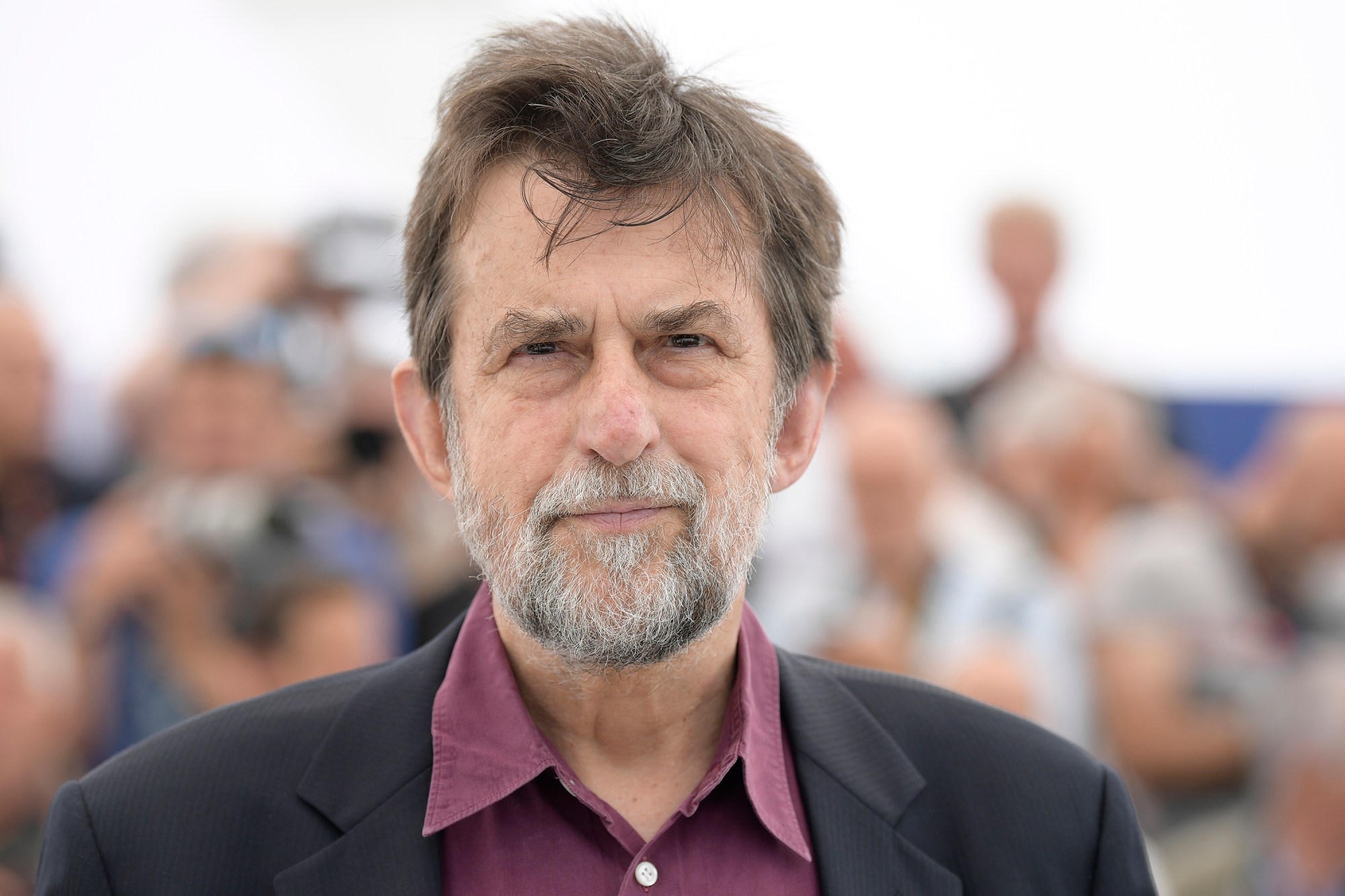
- Festivals
Nanni Moretti and his “Il sol dell’Avvenire”
In a film criticism jest many wonder whether Nanni Moretti’s latest film, Il sol dell’avvenire (A Brighter Tomorrow), is the result of an AI-generated script made out of every single film the Italian writer/director/actor has made since the ’70s. Or, maybe, it’s a sort of an artistic testament through which Nanni Moretti, who will turn 70 on August 19th (he was born in Rome in 1953), intends to say farewell to cinema. “I actually think this film represents the closure of the first chapter of my career as a filmmaker,” Moretti quips in dissent, with a touch of his typical self-irony. “A second and possibly third chapter of my directorial career are still to come,” he told The Hollywood Reporter Rome – the American publication’s new Italian version. “I’m still growing, learning, maturing, and I feel I have way more to say.” The farewell is not even on the horizon. And many Moretti fans are breathing a sigh of relief.
Il sol dell’avvenire, about a film director caught on a creative and personal tailspin, debuted at Cannes Film Festival last May and received 13 minutes of applause from the audience of the Palais. The film has been out in theaters in Europe with good results. Moretti is adamant about his movies being released in theaters only).
It also marks the 50th anniversary of Moretti’s beginning in film: in 1973 he bought a Super 8 camera and started making short movies, such as La sconfitta and Paté de bourgeois, which showcased his quirky talents and brought him quickly to the longer format.
In 1976, with the help of a shoestring budget, he wrote, directed, and acted in his first feature, Io sono un autarchico (I’m self-sufficient), followed by Ecce Bombo, in 1978. The Moretti brand of comedic melancholy, social and political commentary, and droll critique of the cultural cliches – especially among the leftist intellectuals – was born.
He went on to make hits such as Sogni d’oro, Bianca, Palombella Rossa, and Caro Diario ,all considered cult movies in Italy and France. Then, he released La stanza del figlio (The Son’s Room, with which he won the Palm d’Or in Cannes in 2001), Mia madre (My Mother) and most recently Tre Piani (Three Floors), based on Eshkol Nevo’s best-selling novel.
Il sol dell’avvenire, featuring Moretti himself, Margherita Buy and Silvio Orlando among many others, is a pastiche of musical, film-within-the-film (a la Truffaut or Fellini) and political rumination that echoes Moretti’s past works. It’s the story of Giovanni (Moretti), an Italian film director in the middle of a personal and professional crisis and maddened by the new Netflix rules of filmmaking, which he abhors.
He’s filming a movie set in 1956, in Rome, at the time of a historic snowfall and the year Soviet tanks invaded Hungary, an event that marked the disillusionment of many Italian leftists towards communism. Everything is wrapped between songs and a repertoire of Moretti’s classic gags: his obsession for shoes, Nutella, Sacher torte, Hollywood musicals, his impatience for hypocrisy, and the banalities pervading our lives.
Il sol dell’avvenire was generally well received at Cannes and in France, where Moretti enjoys an excellent following and esteem, as well as his own Italy. But whereas many critics welcomed his return to “morettismo” after three straightforward dramas, others were slightly put-off by an excess of that very same “morettismo”.
Moretti has been a staple at Cannes, where he presided over the jury in the past. “I was more nervous with this film than ever in the past,” Moretti told Italian newspaper La Repubblica. “Il sol dell’avvenire is a very personal work for me, and I know that many will see in it a sort of ‘summa’ of my themes and styles. I’m not totally aware anymore of what those are, but I am aware that’s how the film will be dissected.”
“I remember the first time I was awarded at Cannes with Caro Diario (Dear Diary) in 1993, when Clint Eastwood was the jury’s president,” Moretti continues. “He liked my wandering in Rome on my Vespa in that episodic movie, and though my work was so distant from Eastwood’s, he appreciated it a lot, and I was so pleased. Caro Diario was also the first film in which I was portraying myself: I thought it was absurd to keep hiding behind a fictional character. In Il sol dell’avvenire Giovanni [his birth name, editor’s note] is both me and someone else, he’s an Id at odd.”
Moretti often mentioned as its main source of inspiration Fellini’s 8 1/2 and La Dolce Vita. “But if you ask me about other filmmakers who I draw inspiration from,” he told the Italian edition of The Hollywood Reporter, “I’ll give you a different answer depending on the day and my mood: today, for example, I’d say Brian De Palma’s Dressed to Kill.”
Moretti is also a producer and exhibitor. He owns the Cinema Sacher in Rome, an art house where he showcases non-commercial films, organizes retrospectives and screens short films by young filmmakers. He has been more and more helpful to budding directors and insists in the importance of theatrical releases. “I keep envisioning and making my films for the theaters, conceived to be enjoyed in theaters, not on streaming platforms,” he said.
He added: “Please do not misunderstand me: I think platforms such as Netflix, MAX, and others are an excellent opportunity for filmmakers to showcase their work, or to just work, of course. But, please, don’t start complaining that the producers at Netflix told you that the target of your project is going to be a 13-year-old in Missouri who watches films or series on his smartphone on the train to school. If you want to swim in those waters, you must know what fish you’re swimming with, and be prepared. Ultimately, it’s your choice. Certainly, it’s not my choice.”

